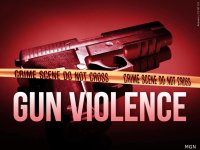If you’re like me, you’ve probably wrestled with the gun control debate more times than you can count. It’s not just some abstract policy argument; it’s personal, raw, and often infuriating. Because behind every statistic about gun violence are real lives—our neighbors, our children, and sometimes ourselves. So where do we stand when the sacred right to bear arms clashes with the desperate need for safety?
Let’s get real. The Second Amendment is cherished by millions, myself included in moments when I’ve felt vulnerable. Owning a gun can feel like the ultimate assertion of freedom—a tangible shield against chaos. But ask yourself: freedom for whom? When does that freedom turn into recklessness? When your “right” to carry a weapon means the kid down the street can’t walk to school without fear? When the headline screams another mass shooting, and the conversation circles endlessly with no meaningful action?
Here’s the raw truth that often gets lost: guns don’t just kill criminals. They kill children. They kill families. They kill futures. And yet, the fiercest defenders of gun rights dismiss calls for regulation as an assault on liberty, often invoking slippery slopes and government overreach. But what about the slippery slope of inaction—the slow erosion of public safety while rhetoric reigns supreme?
I get it. The idea of a government dictating what you can and cannot own feels like a step toward authoritarianism. But is it really authoritarianism to say, “Hey, maybe we shouldn’t allow assault rifles to be sold like candy”? Is it tyranny to require background checks that catch dangerous individuals? Or are we just clinging to an outdated notion of freedom that no longer fits the realities of modern society?
And what about the cultural aspect? Guns are woven into the fabric of American identity for many. Hunting, sport, self-reliance—the narratives are powerful. But culture isn’t static. It evolves. Just because something was sacred in the past doesn’t mean it should be exempt from scrutiny now, especially when lives are on the line.
Here’s the kicker: I don’t have all the answers. But what I do know is this—if the price of “freedom” is a child’s life, a friend’s death, or a community’s grief, maybe we’re asking the wrong question. Maybe it’s time to redefine what freedom really means: not the right to bear arms unchecked, but the right to live without fear.
So, where do you stand? Is your freedom worth the cost of silence and inaction? Or is it time to demand real change, even if it means challenging deeply held beliefs? This isn’t just a debate—it’s a moral crossroads. And history will judge which side we chose.
Let’s get real. The Second Amendment is cherished by millions, myself included in moments when I’ve felt vulnerable. Owning a gun can feel like the ultimate assertion of freedom—a tangible shield against chaos. But ask yourself: freedom for whom? When does that freedom turn into recklessness? When your “right” to carry a weapon means the kid down the street can’t walk to school without fear? When the headline screams another mass shooting, and the conversation circles endlessly with no meaningful action?
Here’s the raw truth that often gets lost: guns don’t just kill criminals. They kill children. They kill families. They kill futures. And yet, the fiercest defenders of gun rights dismiss calls for regulation as an assault on liberty, often invoking slippery slopes and government overreach. But what about the slippery slope of inaction—the slow erosion of public safety while rhetoric reigns supreme?
I get it. The idea of a government dictating what you can and cannot own feels like a step toward authoritarianism. But is it really authoritarianism to say, “Hey, maybe we shouldn’t allow assault rifles to be sold like candy”? Is it tyranny to require background checks that catch dangerous individuals? Or are we just clinging to an outdated notion of freedom that no longer fits the realities of modern society?
And what about the cultural aspect? Guns are woven into the fabric of American identity for many. Hunting, sport, self-reliance—the narratives are powerful. But culture isn’t static. It evolves. Just because something was sacred in the past doesn’t mean it should be exempt from scrutiny now, especially when lives are on the line.
Here’s the kicker: I don’t have all the answers. But what I do know is this—if the price of “freedom” is a child’s life, a friend’s death, or a community’s grief, maybe we’re asking the wrong question. Maybe it’s time to redefine what freedom really means: not the right to bear arms unchecked, but the right to live without fear.
So, where do you stand? Is your freedom worth the cost of silence and inaction? Or is it time to demand real change, even if it means challenging deeply held beliefs? This isn’t just a debate—it’s a moral crossroads. And history will judge which side we chose.

